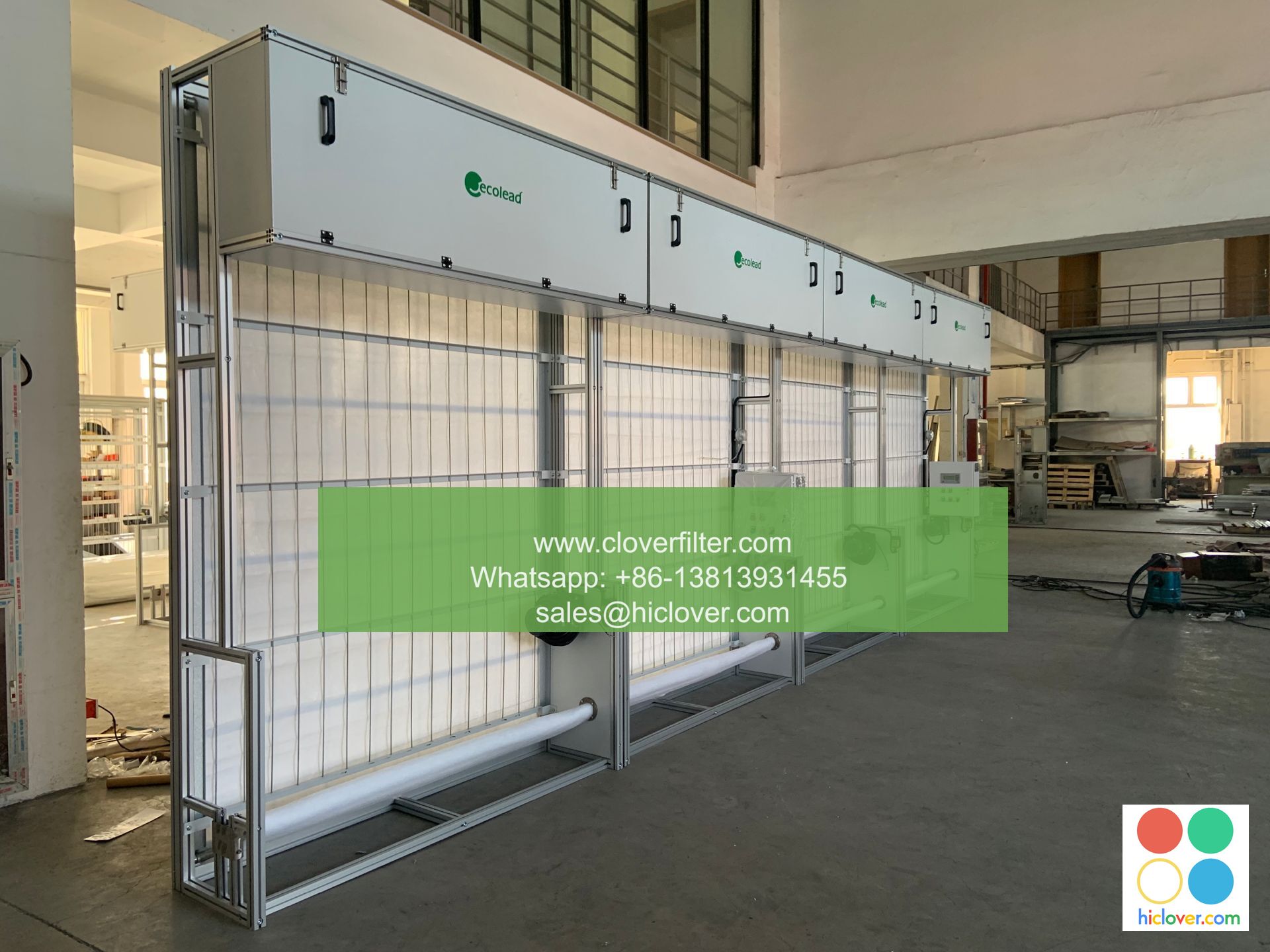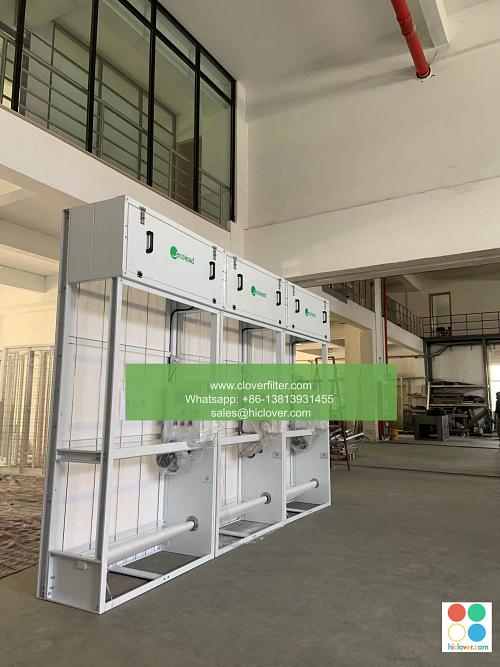Calgary Petroleum Processing Plant: Air Quality Control with Automatic Roll Air Filters

The Calgary Petroleum Processing Plant is a significant industrial facility that plays a crucial role in the production and refining of petroleum products. As with any large-scale industrial operation, the plant has a substantial impact on the environment, particularly in terms of air quality. To mitigate the negative effects of air pollution, the plant has implemented various control measures, including the use of automatic roll air filters. This article will discuss the importance of air quality control at the Calgary Petroleum Processing Plant and the role of automatic roll air filters in maintaining a clean and healthy environment.
Air pollution is a major concern at industrial facilities like the Calgary Petroleum Processing Plant, where the release of particulate matter, gases, and other pollutants can have severe consequences for the environment and human health. The plant’s operations involve the processing and refining of crude oil, which generates significant amounts of air pollutants, including sulfur dioxide, nitrogen oxides, and volatile organic compounds. If left uncontrolled, these emissions can contribute to respiratory problems, cardiovascular disease, and other health issues in nearby communities.
To address these concerns, the Calgary Petroleum Processing Plant has implemented a comprehensive air quality control system that incorporates various technologies and strategies. One of the key components of this system is the use of automatic roll air filters, which are designed to capture particulate matter and other pollutants from the plant’s emissions. These filters are highly effective in removing pollutants from the air, with efficiencies of up to 99.9% for particles as small as 0.3 microns.
The automatic roll air filters used at the Calgary Petroleum Processing Plant are designed to operate continuously, with minimal maintenance and upkeep required. The filters are mounted in a housing unit that is connected to the plant’s ventilation system, and they are automatically replaced or cleaned as needed. This ensures that the filters remain effective and do not become clogged or saturated with pollutants, which can reduce their efficiency and compromise air quality.
In addition to the use of automatic roll air filters, the Calgary Petroleum Processing Plant has implemented other air quality control measures, including the use of scrubbers, electrostatic precipitators, and selective catalytic reduction systems. These technologies work together to remove pollutants from the plant’s emissions and minimize the impact on the environment. The plant also conducts regular monitoring and testing to ensure that its air quality control systems are operating effectively and that emissions are within acceptable limits.
The implementation of automatic roll air filters and other air quality control measures at the Calgary Petroleum Processing Plant has had a significant impact on the environment and public health. By reducing the release of air pollutants, the plant has helped to minimize the risks associated with respiratory problems, cardiovascular disease, and other health issues. The plant’s air quality control system has also helped to protect the environment by reducing the amount of pollutants released into the air and preventing the formation of ground-level ozone and other secondary pollutants.
In conclusion, the Calgary Petroleum Processing Plant’s use of automatic roll air filters and other air quality control measures is a critical component of its overall environmental management strategy. By controlling emissions and minimizing the release of air pollutants, the plant is helping to protect the environment and public health. The plant’s commitment to air quality control is an important step towards reducing the negative impacts of industrial operations and promoting a cleaner, healthier environment for future generations.
FAQs
Q: What are automatic roll air filters, and how do they work?
A: Automatic roll air filters are a type of air filter that uses a rolling mechanism to automatically replace or clean the filter media as needed. They are designed to capture particulate matter and other pollutants from industrial emissions, and they are highly effective in removing pollutants from the air.
Q: What are the benefits of using automatic roll air filters at the Calgary Petroleum Processing Plant?
A: The benefits of using automatic roll air filters at the Calgary Petroleum Processing Plant include improved air quality, reduced emissions, and minimized risks to public health and the environment. The filters are also designed to operate continuously with minimal maintenance and upkeep required, which reduces the need for manual intervention and minimizes downtime.
Q: What other air quality control measures are used at the Calgary Petroleum Processing Plant?
A: In addition to automatic roll air filters, the Calgary Petroleum Processing Plant uses a range of other air quality control measures, including scrubbers, electrostatic precipitators, and selective catalytic reduction systems. These technologies work together to remove pollutants from the plant’s emissions and minimize the impact on the environment.
Q: How effective are the air quality control measures at the Calgary Petroleum Processing Plant?
A: The air quality control measures at the Calgary Petroleum Processing Plant are highly effective in removing pollutants from the plant’s emissions. The plant’s automatic roll air filters have an efficiency of up to 99.9% for particles as small as 0.3 microns, and the other control measures used at the plant are also highly effective in minimizing emissions and reducing the impact on the environment.

